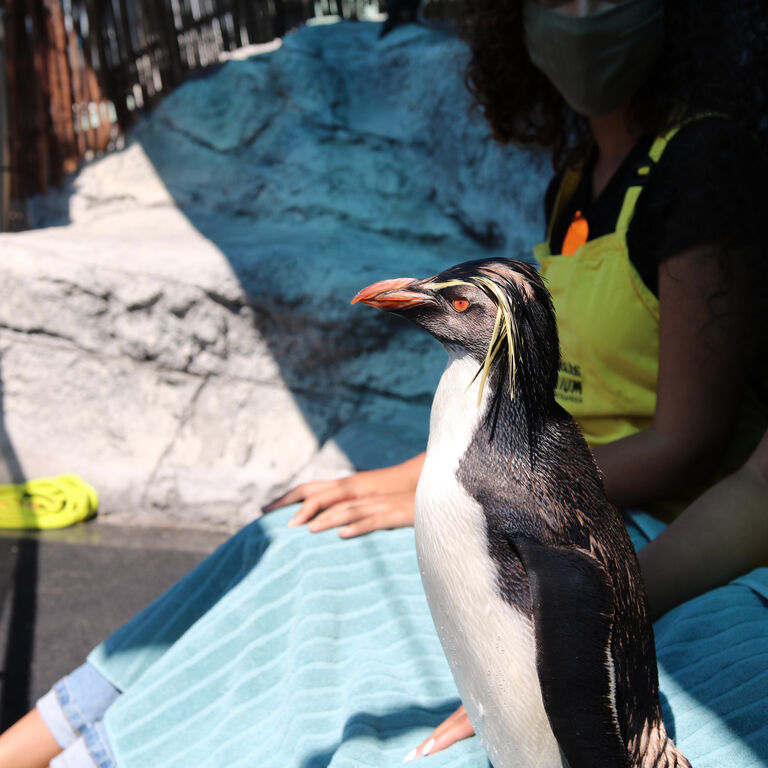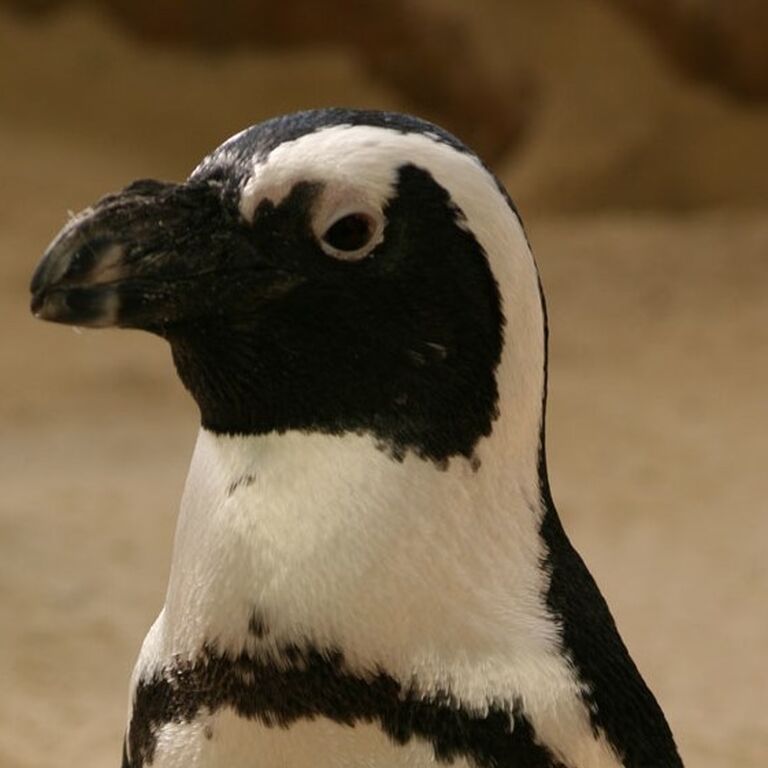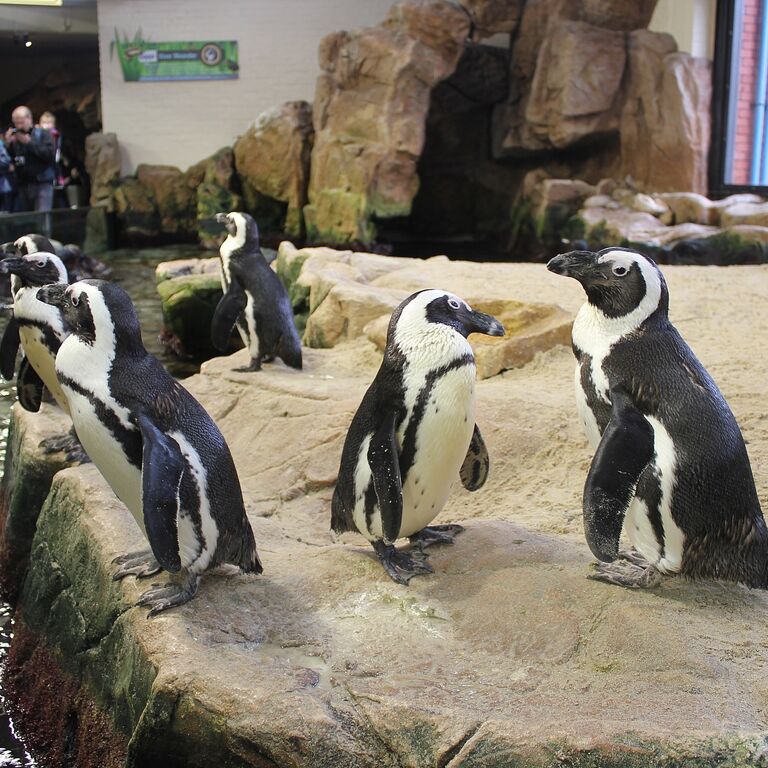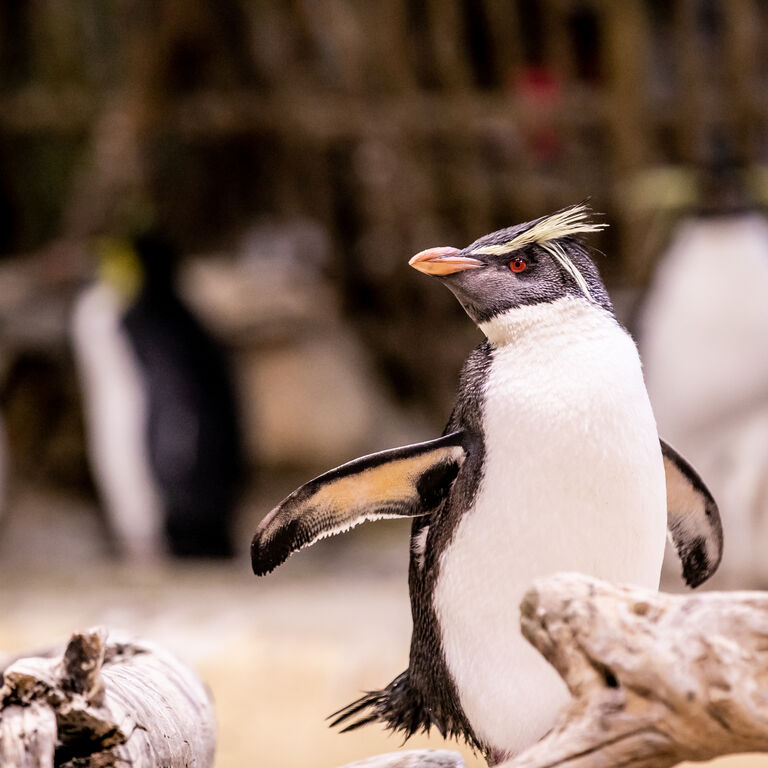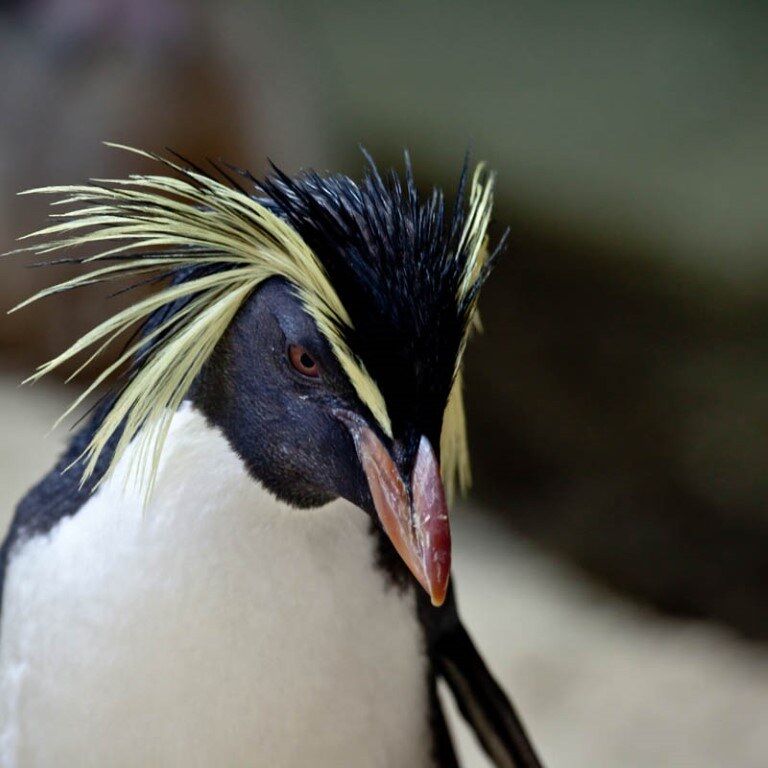
The southern tip of the African continent is the meeting place of two mighty and bountiful oceans, the Indian and the Atlantic. The Two Oceans Aquarium on the V&A Waterfront, Cape Town, is ideally positioned to showcase the incredible diversity of marine life found off the southern tip of Africa.
The Two Oceans Aquarium is dedicated to informing and inspiring all to connect with and protect our ocean and the natural world through conservation, awareness, research, and education.
Quick Stats
General:
- Penguins are flightless seabirds that live almost exclusively below the equator.
- The 18 species of penguins vary broadly in shape and size, but all have black bodies and white bellies.
- No penguin species can fly, but their stiff flippers, webbed feet, and sleek shapes make them excellent swimmers.
- Roughly two-thirds of penguin species are listed as threatened on the IUCN Red List.
- All penguins are carnivores, feeding on fish, squid, crabs, krill, and other seafood.
- Penguins mate for life – they even have special contact calls for their partners and chicks.
African penguins:
- African penguins are endemic to the coastlines of South Africa and Namibia.
- South Africa is home to 15 colonies - Boulder's Beach and Betty's Bay are the most visited.
- African penguins are currently regarded as vulnerable to extinction.
- The black freckles on their chest and belly are unique to each penguin and are the main way humans learn to tell the penguins apart.
- African penguins used to be known as "jackass penguins" because of their braying call.
Northern rockhopper penguins:
- Northern rockhopper penguins are the smallest of the crested penguin species.
- They live on rocky, inaccessible coasts in the South Atlantic and Indian Oceans.
- Rockhopper penguins build nests of pebbles or twigs on very high, rocky hills.
- Rockhopper penguins are so named because they hop up and down steep slopes to go to their nests.
- Rockhopper penguins are relatively small compared to other penguin species, but what they lack in size, they make up for in noise!
Penguins at the Two Oceans Aquarium
The Penguin Exhibit
The Two Oceans Aquarium's Penguin Exhibit is home to a colony of African penguins and Northern rockhopper penguins. The penguins share the space with several freshwater species - amphibians like western leopard toads and common platannas, and a small selection of freshwater fish (indigenous and alien). A bird hide, overlooking the rockhopper rookery, offers visitors a place to take a moment to observe this dynamic environment.
African penguin beach
The African penguin beach is modelled after the natural habitat seen in South Africa's wild African penguin colonies. The penguins swim and preen in the cold waters, sun themselves on the sandy beach and enjoy the company of their chosen partners.
There are 20 African penguins in the colony at the Two Oceans Aquarium, all of which were hatched and reared in captivity. Our African penguins cannot be released because they do not have the same level of immunity as wild populations, making them more susceptible to diseases and other threats. Given that the wild population of African penguins is under extreme threat of extinction, introducing new adult penguins to the existing population would further exacerbate the pressure on food supply and survival. It is currently illegal to release these captive-bred penguins into the wild in South Africa.
You can watch the African penguins get fed every day at 11h30 and 14h30 at their beach in the Penguin Exhibit. During the feeding, one of our knowledgeable staff members talks about the African penguins, their lifestyles, and why they're going extinct.
Northern rockhopper penguin beach
The Northern rockhopper penguins are renowned for their jumping abilities, so their beach is scattered with boulders on multiple levels. Every day, the rockhopper penguins swim in the Kelp Forest Exhibit, an activity that provides them with exercise and enrichment!
Northern rockhopper penguins are not naturally found in South African waters as they occur on islands thousands of kilometres south of South Africa. The rockhopper penguins at the Two Oceans Aquarium were found stranded on southern Cape beaches. The best explanation for this is that they were caught and kept on large fishing vessels as pets or food. The penguins are likely tossed overboard once the vessels enter South African waters, where possessing these seabirds is illegal. This is where the Southern African Foundation for the Conservation of Coastal Birds (SANCCOB) provides care for the stranded seabirds before they are integrated into the existing rockhopper penguin colony at the Two Oceans Aquarium.
#NOOW African penguin campaign
The African penguin is listed as Critically Endangered on the IUCN Red List and faces functional extinction by 2035. The #NotOnOurWatch African penguin campaign was created to drive movement and raise awareness about the urgent need for action to reverse the decline of the African penguin population in the wild. The campaign is supported by the Two Oceans Aquarium Foundation, The Florida Aquarium, Georgia Aquarium, and Zoos Victoria.
In the early 1900s, between 1.5 to 3 million individual African penguins lived along the Namibian and South African coasts. It is estimated that there were close to 1 million pairs on the West Coast’s Dassen Island alone. However, by the mid-1950s, only 10% of these numbers were left due to egg harvesting and guano removal. Worryingly, since 1979, when the first count of the major South African colonies was conducted, the breeding population has declined from ~55 200 pairs to a mere ~9 000 breeding pairs in 2024. With such a small number of individual birds in the wild, the population will be functionally extinct by 2035. This means that the population will be so small that it will no longer be able to breed enough to increase numbers again.
The #NotOnOurWatch African penguin campaign aims to raise support for wise decisions to be made by the relevant authorities concerning the future of the African penguin. #NOOW is also about building pride in African penguins as a unique and charismatic part of South Africa's incredible biodiversity.
If we want our children to see African penguins in the wild, the time for action is now.
Frequently Asked Questions
The African penguins at the Aquarium do not have the same level of immunity as wild penguin populations, making them more susceptible to diseases and other threats. Given that the wild population of African penguins is under extreme threat of extinction, introducing new penguins to the existing population would further exacerbate the pressure on food supply and survival.
The Northern rockhopper penguins in the Penguin Exhibit were found stranded on southern Cape beaches and nursed back to health by the South African Foundation for the Conservation of Coastal Birds (SANCCOB) before being rehomed at the Two Oceans Aquarium. Unfortunately, they cannot be released because of the risk of introducing diseases into wild populations.
You can watch the African penguin feed every day at 11h30 and 14h30 in the Penguin Exhibit. During the feeding, one of our knowledgeable staff members talks about the African penguins, their lifestyles, and why they're going extinct.
The only time that the penguins might look a little grumpy is during their annual moult when all their feathers slowly fall out to be replaced by a fresh set! This helps the penguins maintain their feathers' waterproof function but means that they cannot enter the water while in this phase. As they cannot hunt while moulting, the penguins will store up fat reserves to survive the "moult fast". Once their new set of feathers is ready, the penguins will return to the sea and fill their stomachs with lots of fish!
Yes! Our Penguin Experience offers a chance for up to two people to join one of our Penguin Keepers for an informative, fun and exhilarating face-to-face experience with the Northern rockhopper penguins. During this time, you’ll learn how our penguins are cared for at the Two Oceans Aquarium, discover their stories, and have the chance to meet our feathered friends behind the scenes.
Penguin Experiences happen Tuesdays to Sundays at 10h30 on the roof of the Kelp Forest Exhibit, where the rockhopper penguins enjoy their morning swim at the Two Oceans Aquarium.
